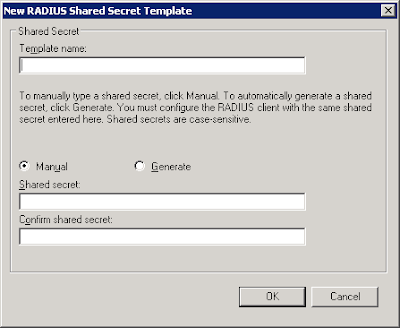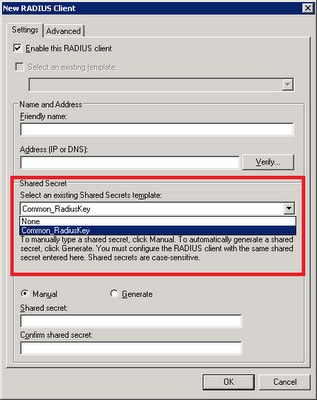I felt that might poised another more serious security issue. Imagine there can be hundreds of devices under his care, what if he lost or accidentally leaked that long password list?
To strike a good balance between manageability and security, I would advise that those less critical devices can share a common key while applying another common key for more sensitive/critical devices (fewer in number). For highly sensitive/critical devices, a unique key may be applied.
Fortunately, Microsoft RADIUS or the Network Policy Server (NPS) in Windows 2008 R2 provides shared secret template feature to facilitate that. A group of devices belonging to similar security level can share a common shared secret template.
To create a new template, open up NPS server console, expand on "Template Management", right-click on "Shared Secret" and add "New". A small windows would pop up:

Give it a name and add in the shared secret. Click "Ok". On the properties of RADIUS client, select the relevant template on the drop-down box.

The Best Apps and Games For Android ·https://apkmodule.com/pocket-tv-apks/
ReplyDelete